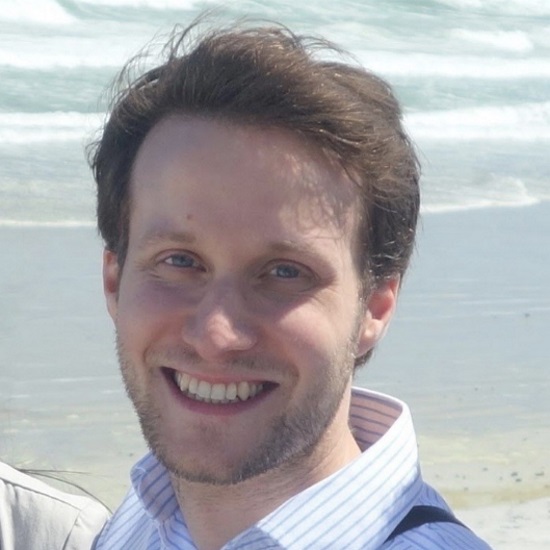Links to external sources may no longer work as intended. The content may not represent the latest thinking in this area or the Society’s current position on the topic.
Data analytics: the skills need in STEM

The UK must train an increasingly large number of advanced data scientists, who combine high-level mathematics and programming ability with the deep domain knowledge and soft skills needed to work in business. These individuals are not only essential for the future productivity of the UK economy but are needed to handle the large datasets created across government and other organisations which underpin new fields of cutting edge research, such as climate change and genomics.
This meeting focussed specifically on the skills gap in data analytics and visualisation in the UK, primarily looking at science, technology and engineering industries and other employers of STEM data science graduates. It aimed to highlight the various roles data scientists are employed in, which skill sets are needed, the barriers data-using companies have in employing data scientists, and how our education and in-work training systems can create enough expert data scientists to fill the future gap.
Please contact the Industry team for more information.
This event was organised in partnership with The Royal Statistical Society.
Organisers
Schedule
| 10:15 - 10:20 |
Welcome

Sir John Skehel FMedSci FRS, Vice-President and Biological Secretary, The Royal Society

Sir John Skehel FMedSci FRS, Vice-President and Biological Secretary, The Royal SocietyJohn Skehel has provided major insights into the molecular basis of how viruses recognise and infect their host cells. John focusses on the virus that causes influenza, of which there are 3–5 million cases a year worldwide, resulting in up to 500,000 deaths. To infect a cell, the influenza virus must bind to a sialic acid-containing receptor on the cell surface, which it achieves through its own haemagglutinin glycoprotein. John was able to isolate, crystallise and subsequently determine the three-dimensional structure of this molecule. He also observed that under conditions of low pH, haemagglutinin changes shape — allowing the virus to fuse with and enter the cell. John has been a leader in virology research for over thirty years. He headed the WHO Collaborating Centre for Reference and Research on Influenza between 1975 and 1993 and was the Director of the National Institute for Medical Research from 1987–2006. His pioneering research was recognised in 1996 when he received a knighthood. |
|---|---|
| 10:20 - 11:00 |
Title TBC

Sir Mark Walport

Sir Mark WalportSir Mark is the Chief Scientific Adviser to HM Government and Head of the Government Office for Science. Previously, Sir Mark was Director of the Wellcome Trust, which is a global charitable foundation dedicated to achieving extraordinary improvements in human and animal health by supporting the brightest minds. Before joining the Trust he was Professor of Medicine and Head of the Division of Medicine at Imperial College London. He is Co-Chair of the Prime Minister’s Council for Science and Technology and has been a member of this since 2004. He has also been a member of the India UK CEO Forum, the UK India Round Table and the advisory board of Infrastructure UK and a non-executive member of the Office for Strategic Coordination of Health Research. He is a member of a number of international advisory bodies. He has undertaken independent reviews for the UK Government on the use and sharing of personal information in the public and private sectors: ‘Data Sharing Review’ (2009); and secondary education: ‘Science and Mathematics: Secondary Education for the 21st Century’ (2010). He received a knighthood in the 2009 New Year Honours List for services to medical research and was elected as Fellow of The Royal Society in 2011. |
Chair

Dr Robert Hercock, BT

Dr Robert Hercock, BT
Dr Robert Hercock is a Chief Research Scientist in the British Telecommunications Security Research Practice. He has over 18 years’ experience in managing security research projects in the UK, and was theme leader for Networks and Cyber Security in the UK MOD Information Fusion Defence Technology Centre. His research interests include Cyber Security, artificial intelligence and Complex Adaptive Systems. He chairs an international workshop on adaptive cyber defence, and has over thirty international publications in AI and security concepts, in addition to twelve filed patents. Robert is a member of the Royal Society's Science, Industry and Translation Committee.
| 11:20 - 12:00 |
The golden age of machine learning and AI
In this presentation Ralf Herbrich, director of machine learning at Amazon will talk about how computing technologies and methods such as machine learning and AI are being used by Amazon to deliver a better experience for customers. He will discuss this in the context of the trends that are driving the adoption of these new technologies by business as we enter a golden age of machine learning and AI. 
Dr Ralf Herbrich, Managing Director of Amazon Development Center Germany GmbH

Dr Ralf Herbrich, Managing Director of Amazon Development Center Germany GmbHSince November 2012, Dr. Herbrich works at Amazon as Director of Machine Learning Science; until August 2013 he worked in Seattle and then in Berlin, Germany. Dr. Herbrich's team works in the area of Forecasting, Content Linkage, Scalable Machine Learning Services and Vision-Assisted Technologies. From October 2011 to November 2012, Dr. Herbrich worked at Facebook in Palo Alto & Menlo Park leading the Unified Ranking and Allocation team. This team is focused on building horizontal large-scale machine learning infrastructure for learning user-action-rate predictors that enabled unified value experiences across the products. From 2009 to 2011, Dr. Herbrich was Director of Microsoft’s Future Social Experiences (FUSE) Lab UK demonstrating and enabling new social experiences through development of computational intelligence technologies on large online data collections. From 2006 – 2009, together with Thore Graepel, Dr. Herbrich was leading the Applied Games and the Online Services and Advertising (OSA) research group, which engaged in research at the intersection of machine learning and computer games as well as research in search and online advertising combining insights from machine learning, information retrieval, game theory, artificial intelligence and social network analysis. Dr. Herbrich joined Microsoft Research in 2000 as a Postdoctoral researcher and Research Fellow of the Darwin College Cambridge. Prior to joining Microsoft, Dr. Herbrich worked at the Technical University Berlin as a teaching assistant where he obtained both a diploma degree in Computer Science and a Ph.D. degree in Statistics. Research interests of Dr. Herbrich include Bayesian inference and decision making, computer games, kernel methods and statistical learning theory. Dr. Herbrich is one of the inventors of the Drivatars™ system in the Forza Motorsport series as well as the TrueSkill™ ranking and matchmaking system in Xbox 360 Live. Dr. Herbrich also co-invented the adPredictor click-prediction technology used today in Bing’s online advertising system. |
|---|---|
| 12:00 - 12:20 |
Data analytics in F1 and beyond
In traditional data rich industries such as Formula 1, data analytics and simulation have been core components of the engineering cycle for decades and their interface involved mostly engineers and scientists. But as the physical and digital worlds converge, new categories of intelligent and adaptive products and processes are emerging, creating entirely new types of experiences for consumers. This leads to an increasing need for a broader breed of data scientists and other STEM-based skilled individuals that are also able to make links across increasingly diverse disciplines such as design and behavioural sciences in order to innovate the problem space as well as the solution space. 
Dr Caroline Hargrove, Technical Director, McLaren Applied Technologies

Dr Caroline Hargrove, Technical Director, McLaren Applied TechnologiesCaroline is a founding member of McLaren Applied Technologies (part of the McLaren Technologies Group) set up to exploit McLaren technology and expertise to new markets. She has worked in a range of sectors from motorsports to health, elite sports and energy. Caroline obtained a PhD in Engineering from Cambridge. After lecturing for 4 years at Cambridge, she joined the McLaren F1 team. For 10 years, she worked in vehicle dynamic simulations and on the development of the F1 simulator. In 2007, she joined McLaren Applied Technologies, where she is now the Technical Director. In 2015, she was also appointed Visiting Professor in surgical simulations at the University of Oxford. |
| 12:20 - 12:40 |
Data sciences and related disciplines: an industry perspective on demand, supply and current challenges
Please note this talk will now be given by Professor Nicky Best, Head, Statistical Innovation Group, GSK This talk will outline the various roles that graduates of mathematics, statistics, programming and data sciences currently perform at GSK; the challenges we face in terms of supply and demand; the skills we seek in those we recruit; and discuss ideas regarding the future direction and utilisation of these disciplines within the pharmaceutical industry. |
Chair

Professor Guy Nason, University of Bristol and Vice-President, Academic Affairs at the RSS

Professor Guy Nason, University of Bristol and Vice-President, Academic Affairs at the RSS
Guy Nason is Professor of Statistics and Director of the Institute for Statistical Science at the University of Bristol. He obtained his BSc and PhD from the University of Bath and the Diploma in Mathematical Statistics from the University of Cambridge. He has held academic appointments at the Universities of Bath and Chicago and was Head of the School of Mathematics at Bristol from 2008-12.
His research interests are in time series analysis, multiscale methods, network time series, energy and official statistics and was awarded the 2001 Guy Medal in Bronze from the Royal Statistical Society for his work on wavelets in statistics. He is currently Associate Editor of Biometrika (since 2008) and Applied Computational Harmonic Analysis (since 2012) and was previously editor for Series B of the Royal Statistical Society's Journal, Statistica Sinica and Computational Statistics.
He has been an Engineering and Physical Sciences Research Council Advanced Research Fellow (2000-5), an Established Career Fellow from 2013 and was a member of the EPSRC Strategic Advisory Team in Mathematics (2007-10).For the Royal Statistical Society he served as an Avon Local Group Committee Member (1992-5) and Secretary (2000-1), Research Section Committee Member (1996-9) and Secretary (2002-4), elected member of Council (2004-8) and served on Finance Committee. He was the Programme Committee Chair for the Society's 175th Anniversary Conference in Edinburgh in 2009.
He is also a Fellow of the Institute of Mathematics and its Applications an Elected Member of the International Statistical Institute and member of the Institute of Mathematical Statistics, the Bernoulli Society and the International Association for Official Statistics.
| 14:00 - 14:30 |
The explosion of biomedical big data
Our ability to measure human biology and health is growing rapidly both in depth, from genomics to imaging to electronic health records, and scale, with several programmes in the UK alone measuring many modalities across cohorts of 100,000 and more. The challenges associated with storing, processing, exploring and making sense of such data are huge and require the application and integration of many different skill sets. I will attempt to identify the key problems ahead in fostering a generation of biomedical data scientists capable of getting the most, both academically and commercially, out of the amazing opportunities such data offers. 
Professor Gil McVean FRS, Director of the Big Data Institute, Li Ka Shing Centre for Health Information and Discovery, The University of Oxford

Professor Gil McVean FRS, Director of the Big Data Institute, Li Ka Shing Centre for Health Information and Discovery, The University of OxfordGil McVean uses mathematical, statistical and computational approaches to learn about fundamental biological and evolutionary processes, particularly recombination, mutation and natural selection, through the study of genetic variation in natural populations. He developed the first statistical method for estimating fine-scale patterns of recombination rate variation from genome-scale genetic variation data. Application of this method led to the first fine-scale genetic map in humans, helped identify the hotspot-positioning gene PRDM9, and has led to discoveries about how recombination evolves. He has also played leading roles in efforts to map patterns of genetic variation in humans through the International HapMap Project and the 1000 Genomes Project, made important contributions to theoretical population genetics and the study of mutation and developed an influential statistical method for imputing classical HLA alleles from SNP data. His work on coloured de Bruijn graphs and graph genomes is helping to make possible the study of highly diverse species and genomic regions. Gil’s work has been recognised through awards including the 2010 Francis Crick Medal and Lecture and the 2012 Weldon Memorial Prize. |
|---|---|
| 14:30 - 14:50 |
Data science, business & the future of society
In this talk, Dr Ge will show how innovation is being transformed through the growth of data about customers, markets, cities and government. This is creating entrepreneurial opportunities to develop new products and services, stimulating new types of start-up business and social enterprise. It is disrupting and transforming the ways in which existing businesses and governments operate, intensifying competition and giving rise to new patterns of innovation. 
Dr Ling Ge, Fellow, Data Science Institute, Imperial College

Dr Ling Ge, Fellow, Data Science Institute, Imperial CollegeAfter carrying out ground breaking research in quantum computing, nanotechnology and batteries at Oxford University and Imperial College, Dr Ling Ge is an award-winning scientist, Fellow of Data Science Institute and Executive Officer to the Vice President (Innovation) at Imperial College London. Previously she managed the EPSRC UK National Service for Computational Chemistry Software (NSCCS) and oversaw all aspects of the national service with a vision to ensure that the UK remains at the forefront of computational research globally. Ling completed her doctorate in modelling carbon nanomaterials – carbon nanotubes, fullerenes and graphene – for quantum computing at Oxford University. Following that she was a Leverhulme Fellow at Imperial. She is a Clarendon Scholar of Oxford University, Senior Member and Dormus Scholar at St. Anne’s College, Oxford. She wrote for the Financial Times and Wired Magazine, promoting science, innovations, public health and policy across the globe. |
|
New and emerging technologies in data science
The session will explore how technologies such as machine learning may affect the skills gap. It will look in particular at how machine learning can be used to automate data science, the likely impact of the technology on skills needs and future directions for the development of this field. There will be contributions from Dr Anat Elhalal, Lead Technologist – Data, Digital Catapult; Dr James Geddes, Research Software Engineer, The Alan Turing Institute; and Dr Christian Steinruecken, Computational and Biological Learning, University of Cambridge. |
|
|
Skills gaps in industry
This session will look at particular data skills gaps faced in industry and approaches to solve them. There will be presentations from Dr George Windsor, Senior Policy Researcher, NESTA; Dr Kim Nilsson, CEO, Pivigo and Dr Martin Goodson, VP Data Science, Skimlinks, followed by time for discussion on this topic. |
|
|
Diversity in data science
This session will explore the current issues around diversity in data science, look at diversity issues from an employer’s perspective and consider how other fields have tackled this area. There will be contributions from Faye Pressly, Associate Director, Mortimer Spinks; Jackie Clayton, Global Analytics Academy Director, AIMIA; and Jenny Dyer, Head of Diversity at the Institute of Physics. |
| 16:15 - 16:35 |
Visual Analytics: Human-computer symbiosis for the big data era
Although the democratisation of machine learning is proving highly promising for industrial data analytics in particular, never has it been more important to ensure that human experts remain in the loop. The emerging field of Visual Analytics seeks to facilitate effective human-computer symbiosis through presenting data, and any automated processes acting upon the data in an intuitive and interactive manner, with an emphasis on sense-making and steering of underlying algorithms. Such technology may reduce the required level of skills, but rather than circumventing data scientists, it offers a promising means of bridging the gap between them and the growing pool of business analysts. 
Alex Healing, Chief Researcher, BT

Alex Healing, Chief Researcher, BTAlex Healing is Chief Researcher of Visual Analytics at BT where he leads a multi-disciplinary team of researchers and developers who create web-based visual analytic systems for a wide range of applications including large-scale network security. He architected the award-winning Assure Analytics capability and regularly works to bridge the gap between research theory and business operations. He has published in several conferences and journals, is co-author of nine patent applications and has won several awards. He holds a joint honours degree in Artificial Intelligence and Computer Science from the University of Edinburgh. |
|---|---|
| 16:35 - 16:55 |
Delivering business value with embedded corporate analytics
Over the past five years, Jaguar Land Rover has doubled sales and employment, becoming the UK’s largest automotive manufacturer. In this fast changing environment, basic analytics has often provided critical business information before IT systems can be finalised. Now that data volumes are stretching existing tools and modern analytical tools and techniques are creating new business opportunities, we are looking to both attract and retain talent skilled in these emerging areas and also train and empower our existing workforce. This talk will look at our ideas on embedding analytical excellence into an organisation and the processes and skills needed to turn data into insights and insights into business improvement and optimisation. 
Adrian Mardell, Transformation Director, Jaguar Land Rover

Adrian Mardell, Transformation Director, Jaguar Land RoverAdrian Mardell is the Deputy Chief Financial Officer and Operations Controller for Jaguar Land Rover globally. His 25 years automotive experience has included a number of diverse assignments most notably the acquisition and disposal of multi billion Pound businesses. In his current role he has financial control of £20 billion cost per annum and is responsible for all major product and non product capital investment decisions both inside the UK and globally. Most recently his work has involved intensive negotiations with governments located in different parts of the World, negotiating with very different cultures, to enable the ongoing expansion of the Jaguar Land Rover business. |
| 16:55 - 17:00 | Closing remarks |

